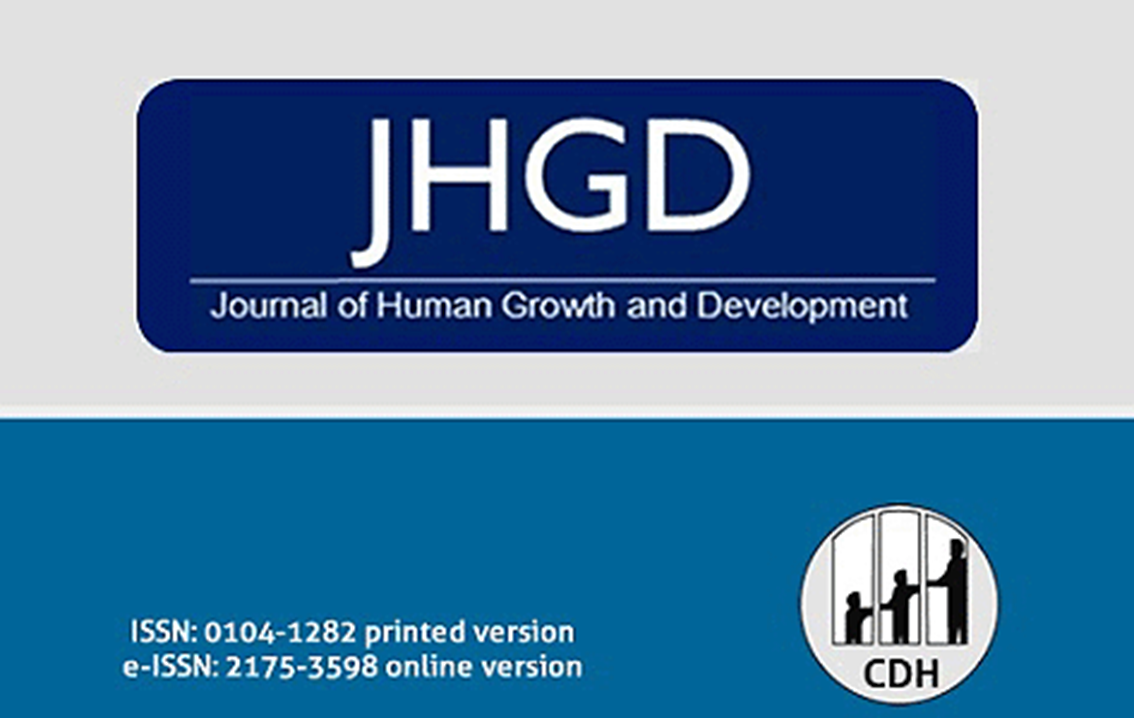Evaluation of the g473a polymorphism in the lysyl oxidase gene as a risk factor related to the occurrence of breast cancer in brazilian women
DOI:
https://doi.org/10.36311/jhgd.v32.13317Palabras clave:
Lysyl Oxidas, Breast Neoplasms, Genetic Polymorphism, Collagen, ElastinResumen
Introduction: breast cancer is the most diagnosed type of cancer and the leading cause of death among women worldwide. Approximately 1.67 million new cases of breast cancer were diagnosed in 2012, leading to more than half a million deaths. Breast cancer accounted for 11.6% of newly diagnosed cancers (2,089 million) and 9.2% (787,000) of cancer-related deaths for both sexes and at all ages worldwide in 2018.
Objective: breast cancer, as the most diagnosed carcinoma in the world and the leading cause of death among women, is a morbidity of outstanding importance, and the object of this study is to evaluate the association between the LOX gene G473A (rs1800449) polymorphism and breast cancer occurrence, potentially establishing a new finding in the identification of risks, prevention, and care for a specific group of women.
Methods:in this retrospective cohort study, LOX G473A polymorphism frequency was assessed in 148 women with breast cancer and 245 women without breast cancer. All patients completed a questionnaire to identify possible risk factors and subsequently underwent peripheral blood collection to study the LOX gene. DNA was extracted followed by gene amplification via PCR, and the polymorphism was studied by specific fragment electrophoresis after digestion of the samples with the restriction endonuclease Pstl.
Results: this study identified the use of oral contraceptives and family history of breast cancer as risk factors for breast cancer; the G473A polymorphism in LOX was not identified as a risk factor.
Conclusion: a relationship was not observed between the LOX G473A polymorphism and the occurrence of breast cancer.
Descargas
Referencias
Di Sibio A, Abriata G, Forman D, Sierra MS. Female breast cancer in Central and South America. Cancer Epidemiology 2016; 44: S110–20. https://doi.org/10.1016/j.canep.2016.08.010
Globocan 2018 Latest global cancer data – IARC n.d. https://www.iarc.who.int/infographics/globocan-2018-latest-global-cancer-data/ (accessed April 1, 2022).
Institucional. INCA - Instituto Nacional de Câncer 2018. https://www.inca.gov.br/institucional (accessed April 1, 2022).
Bray F, Ferlay J, Soerjomataram I, Siegel RL, Torre LA, Jemal A. Global cancer statistics 2018: GLOBOCAN estimates of incidence and mortality worldwide for 36 cancers in 185 countries. CA Cancer J Clin 2018; 68: 394–424. https://doi.org/10.3322/caac.21492
Bray F, Ferlay J, Soerjomataram I, Siegel RL, Torre LA, Jemal A. Global cancer statistics 2018: GLOBOCAN estimates of incidence and mortality worldwide for 36 cancers in 185 countries. CA: A Cancer Journal for Clinicians 2018; 68: 394–424. https://doi.org/10.3322/caac.21492
Rojas K, Stuckey A. Breast Cancer Epidemiology and Risk Factors. Clin Obstet Gynecol 2016; 59: 651–72. https://doi.org/10.1097/GRF.0000000000000239
Goldgar DE, Easton DF, Cannon-Albright LA, Skolnick MH. Systematic population-based assessment of cancer risk in first-degree relatives of cancer probands. J Natl Cancer Inst 1994; 86: 1600–8. https://doi.org/10.1093/jnci/86.21.1600
Mavaddat N, Peock S, Frost D, Ellis S, Platte R, Fineberg E, et al. Cancer risks for BRCA1 and BRCA2 mutation carriers: results from prospective analysis of EMBRACE. J Natl Cancer Inst 2013; 105: 812–22. https://doi.org/10.1093/jnci/djt095
Chen JJ, Silver D, Cantor S, Livingston DM, Scully R. BRCA1, BRCA2, and Rad51 operate in a common DNA damage response pathway. Cancer Res 1999; 59:1752s–6s
Friesenhengst A, Pribitzer-Winner T, Schreiber M. Association of the G473A Polymorphism and Expression of Lysyl Oxidase with Breast Cancer Risk and Survival in European Women: A Hospital-Based Case-Control Study. PLoS ONE 2014; 9:e105579. https://doi.org/10.1371/journal.pone.0105579
Ren J, Wu X, He W, Shao J, Cheng B, Huang T. Lysyl oxidase 473 G>A polymorphism and breast cancer susceptibility in Chinese Han population. DNA Cell Biol 2011; 30: 111–6. https://doi.org/10.1089/dna.2010.1098
Jeong YJ, Park SH, Mun SH, Kwak SG, Lee S-J, Oh HK. Association between lysyl oxidase and fibrotic focus in relation with inflammation in breast cancer. Oncology Letters 2018; 15: 2431–40. https://doi.org/10.3892/ol.2017.7617
Payne SL, Fogelgren B, Hess AR, Seftor EA, Wiley EL, Fong SFT, et al. Lysyl oxidase regulates breast cancer cell migration and adhesion through a hydrogen peroxide-mediated mechanism. Cancer Research 2005; 65: 11429–36. https://doi.org/10.1158/0008-5472.CAN-05-1274
Goodsell DS. The molecular perspective: the ras oncogene. Oncologist 1999; 4: 263–4
Wang G, Shen Y, Cheng G, Bo H, Lin J, Zheng M, et al. Lysyl Oxidase Gene G473A Polymorphism and Cigarette Smoking in Association with a High Risk of Lung and Colorectal Cancers in a North Chinese Population. Int J Environ Res Public Health 2016; 13. https://doi.org/10.3390/ijerph13070635
Zhang H-F, Zhao K-J, Xu Y, Hong B, Zhao W-Y, Liu J-M, et al. Lysyl oxidase polymorphisms and ischemic stroke—a case control study. Mol Biol Rep 2012; 39: 9391–7. https://doi.org/10.1007/s11033-012-1803-9
Diretrizes para a detecção precoce do câncer de mama no Brasil. INCA - Instituto Nacional de Câncer 2018. https://www.inca.gov.br/publicacoes/livros/diretrizes-para-deteccao-precoce-do-cancer-de-mama-no-brasil (accessed April 1, 2022).
Overexpression of Lox in triple-negative breast cancer. | Sigma-Aldrich n.d. https://www.sigmaaldrich.com/US/en/tech-docs/paper/1413766 (accessed April 1, 2022).
Csiszar K, Fong SFT, Ujfalusi A, Krawetz SA, Salvati EP, Mackenzie JW, et al. Somatic mutations of the lysyl oxidase gene on chromosome 5q23.1 in colorectal tumors. Int J Cancer 2002; 97: 636–42. https://doi.org/10.1002/ijc.10035
Ren C, Yang G, Timme TL, Wheeler TM, Thompson TC. Reduced lysyl oxidase messenger RNA levels in experimental and human prostate cancer. Cancer Research 1998; 58: 1285–90.
Kirschmann DA, Seftor EA, Fong SFT, Nieva DRC, Sullivan CM, Edwards EM, et al. A molecular role for lysyl oxidase in breast cancer invasion. Cancer Research 2002; 62: 4478–83.
Min C, Yu Z, Kirsch KH, Zhao Y, Vora SR, Trackman PC, et al. A loss-of-function polymorphism in the propeptide domain of the LOX gene and breast cancer. Cancer Res 2009; 69: 6685–93. https://doi.org/10.1158/0008-5472.can-08-4818
Descargas
Publicado
Número
Sección
Licencia
Derechos de autor 2022 Pereira RGV, Souto RP, Longo PL, Fernandes CE, Filho IC, Felizi RT, Veiga MG, de Oliveira E

Esta obra está bajo una licencia internacional Creative Commons Atribución 4.0.






